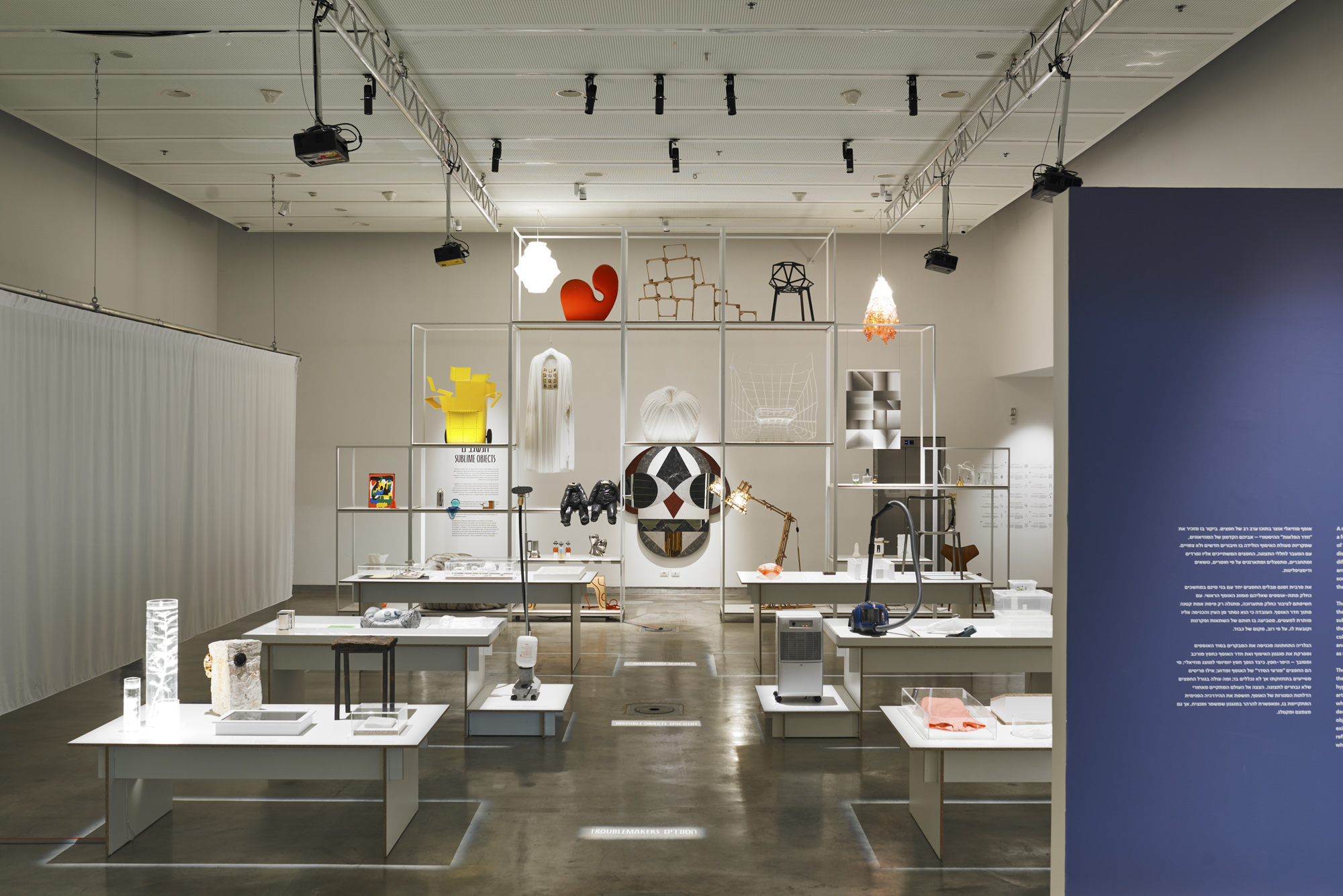Black Box exhibition
2021
An Exhibition from the Museum Collection
Design Museum Holon
Exhibition Design - Rona Zinger
2021
An Exhibition from the Museum Collection
Design Museum Holon
Exhibition Design - Rona Zinger
Imagine the museum collection as an
entity with numerous arms, which repeatedly attempt to wiggle out beyond the
doors, walls, and multitudes of objects swallowed into it. It is enclosed
within various spaces, and devotedly cared for by the museum staff – which
ensures that it will not suffer from excessive humidity, dryness, light,
insects or other harmful intrusions. Most of the objects were not created
especially for museum collections. They were designed to be used, to interact
with one another and with us human beings. Within the museum, however, few are
the objects that enjoy moments of grace, during which they are temporarily put
on display. There, they will be flooded by the museum’s non-UV lights, and met
by the visitors’ gazes. Perhaps they will even be momentarily caressed by an
unruly visitor, who will leave a mark on them. Shortly after, they will return
to the dark recesses of the collection space.
The collection of Design Museum Holon extends over an area measuring approximately 100 square meters, and is located on two floors whose combined height is approximately eight meters. The collection operates as a mechanism of preservation for future generations, as a hyper-object, a system of connections and associations that contains objects, information, bits of history and future predictions. The objects in the collection are isolated, enjoying no interaction with users. They become an ensemble of “black boxes,” in which each object collects knowledge, actions, technologies, materials and the imprint of creators. What can they reveal about themselves? About us? And about our relationships with them?
The exhibition Black Box is an opportunity for the museum to expose its own entrails. The removal of the collection from its dark storage space and its presentation to the public allows for a discussion of a somewhat invisible aspect of the design world – the nature of the relations between objects and people. The exhibition invites the visitors to try and observe these relations in a new and sober manner; to attempt to abandon our definitions of object and person, self and other – turning instead to openly explore role changes and multiples points of view.
The exhibition is composed of two parts, which operate both jointly and separately. The Lower Gallery explores the essence of the museum collection – its value, composition, and hierarchical relations.
The display in the Upper Gallery tracks the history of the events structuring the complex relations between people and objects.
Throughout the exhibition, processes of designing and collecting are revealed as continuous actions involving multiple participants, which arise out of a dialogue between those who are human and those who are not.
The collection of Design Museum Holon extends over an area measuring approximately 100 square meters, and is located on two floors whose combined height is approximately eight meters. The collection operates as a mechanism of preservation for future generations, as a hyper-object, a system of connections and associations that contains objects, information, bits of history and future predictions. The objects in the collection are isolated, enjoying no interaction with users. They become an ensemble of “black boxes,” in which each object collects knowledge, actions, technologies, materials and the imprint of creators. What can they reveal about themselves? About us? And about our relationships with them?
The exhibition Black Box is an opportunity for the museum to expose its own entrails. The removal of the collection from its dark storage space and its presentation to the public allows for a discussion of a somewhat invisible aspect of the design world – the nature of the relations between objects and people. The exhibition invites the visitors to try and observe these relations in a new and sober manner; to attempt to abandon our definitions of object and person, self and other – turning instead to openly explore role changes and multiples points of view.
The exhibition is composed of two parts, which operate both jointly and separately. The Lower Gallery explores the essence of the museum collection – its value, composition, and hierarchical relations.
The display in the Upper Gallery tracks the history of the events structuring the complex relations between people and objects.
Throughout the exhibition, processes of designing and collecting are revealed as continuous actions involving multiple participants, which arise out of a dialogue between those who are human and those who are not.









